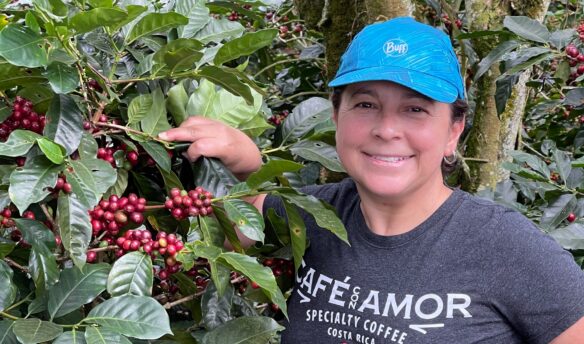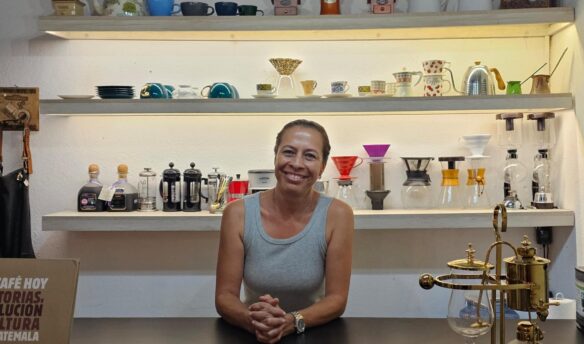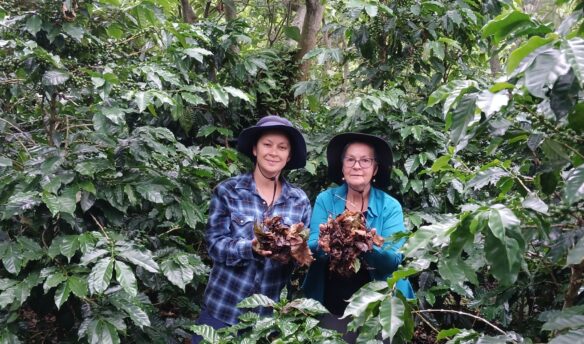In Colombia, agricultural jobs face a formidable challenge as urbanization, the promise of career stability, and higher-paying jobs draw younger generations away from rural areas. The agricultural industry is also dealing with an aging population, and coffee is no different: the average age of a Colombian coffee producer is 55 years old.
The industry’s aging population threatens the future of rural communities and coffee production nationwide. However, amid the peril facing Colombia’s coffee production and cultural heritage, a community of young professionals is invested in crafting a different story—one of empowerment and revitalization—and reclaiming the agricultural work of their homeland.
Reshaping the Rural Narrative
Lucas Cuadros co-founded Unblended Coffee, a coffee exporting and importing company that works with over 30 young producers across Antioquia, Colombia. The son of a hardware manufacturer near Cali, Colombia, Cuadros founded Unblended after he learned two startling truths about Colombian coffee production:
One is that many farmers never know what happens to their coffee. Many sell batches to local cooperatives, which get blended with other coffees without traceability. Second, the coffee farmer population is aging, and farming could be under threat without young people taking part. He felt he could make an impact by creating a more sustainable, viable, and profitable future for coffee-producing families.
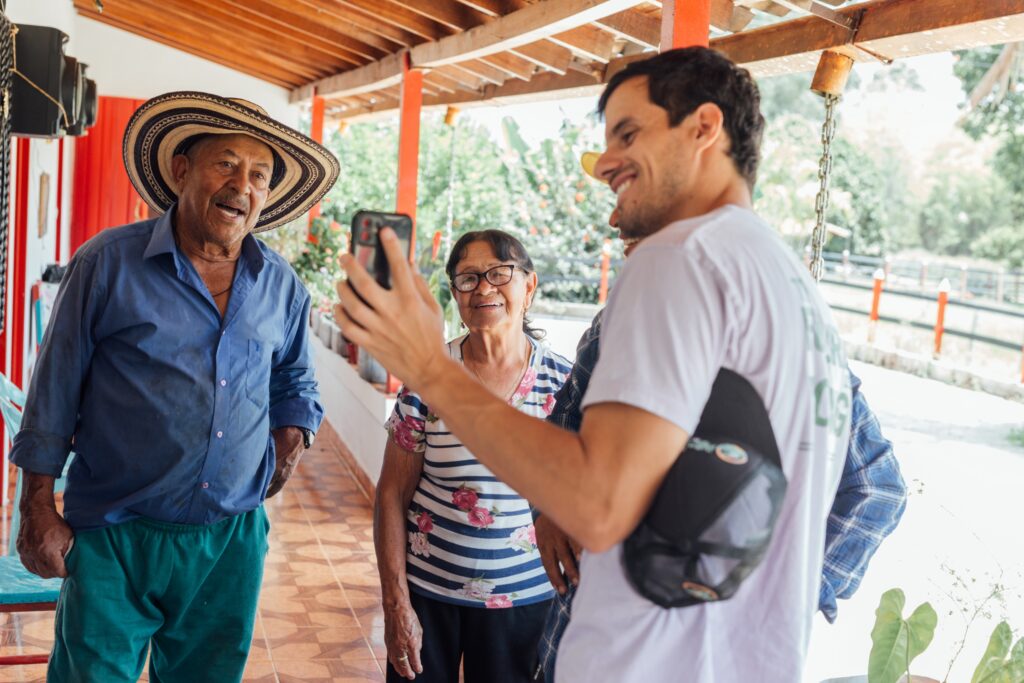
He’s not surprised that younger generations are leaving rural areas to pursue jobs outside of coffee production. “Considering the risk factors with agriculture,” he says, “there is less interest among young people to pursue careers in coffee in the country.”
Cuadros says that the current age crisis isn’t new and is a symptom of historical events in Colombia. “During the late 90s and early 2000s, we had a lot of violence with guerrillas and paramilitaries in the countryside.” This violent chapter drove parents to seek safer prospects for their children in urban areas, kicking off a cycle of rural depopulation. The countryside is significantly safer now, but Cuadros says that “one of the challenges of working with young coffee producers is that this narrative [of violence] is still prevalent among parents.”
Exacerbating the issue is that historically (and still a reality for many), farmers have been underpaid and left powerless in coffee-buying situations. “Parents are also usually skeptical of these new opportunities and models of doing business in coffee due to a history of coffee buyers in the past making false promises,” he says. Cuadros explains that many farmers of past generations were given false promises and commitments from buyers, such as committing to one price and paying lower or committing to purchasing higher quantities but then cherry-picking only a select few coffees.
Unblended’s youth program, called the Young Producer Program, connects young coffee producers with roasting partners and creates long-term relationships that help make coffee production viable and more sustainable. The Young Producer Program is an incubator program where experienced mentors offer practical advice and guidance to young coffee producers to help develop their lots to improve quality and cup profiles; this program also helps mitigate risk and allows young producers to experiment with their coffees and try new fermentation and processing techniques.
However, Cuadros says that intergenerational struggles can make it hard for children interested in coffee farming to take over their parents’ farms. He says that parents are skeptical that this program and business model will financially benefit their children.
Cuadros tells the story of Valeria Pino, a young producer from Sabaletas, Antioquia, a guerilla-occupied small town in the 90s. The Pino family was one of several families that sent their children to Medellín to flee violence. “When we were first introduced to Valeria, she lived in Medellín as a student. But she was so excited and open to the idea of developing lots from her family’s farm in her name and being able to reach roasters in the US. But her dad wasn’t our biggest fan because he was accustomed to tradition, selling to the local cooperative and receiving cash against coffee.
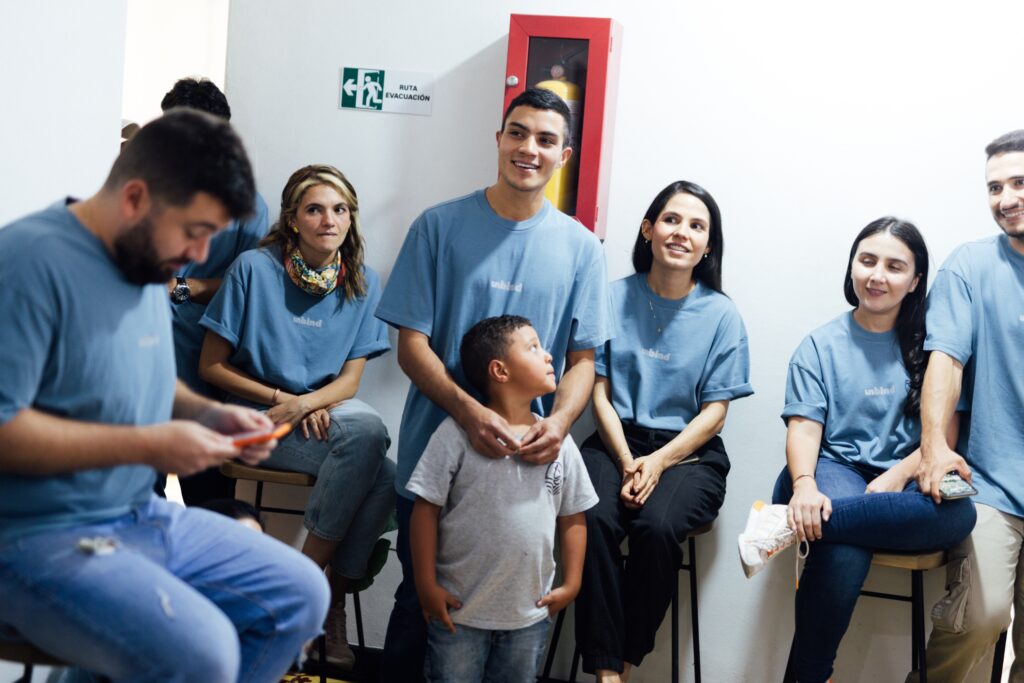
Unblended started small with Pino. “We negotiated with her dad to allow Valeria to produce a few lots for Unblended with the guidance of our mentor producers so we could prove that this was profitable and beneficial to Valeria,” says Cuadros. After Unblended helped her sell her first lot, Cuadros saw demand increase for Pino’s coffee, proving the model could work to her dad. He slowly transitioned more of the coffee farm to Pino, who continues to work with Unblended to sell coffee.
Cuadros says that it can be challenging to convince parents to allow their children to work in coffee, but that people like Pino show that the motivation is there for young people to enter—and find success—in coffee. “With the help of the child’s motivation, we can prove to the parents that our model is more profitable now and in the long run.” By navigating familial dynamics, Cuadros and his team at Unblended have shown that coffee growing can provide positive outcomes for growers, hopefully making it possible for more young people to enter the industry.
Navigating Transition
Carolina Ramirez is 34 years old and from a coffee-growing family in Andes, a municipality in the Antioquia department, and recalls how dangerous her childhood was. “During the 90s, we were victims of the violence of the guerrillas and the paramilitaries that plagued the country at that time.”
Like many traditional farms in Colombia, her family produced washed coffees that they sold in parchment to the local cooperative. Amid the violence, Ramirez decided to leave her community and pursue a law degree, but her heart remained tethered to her family’s coffee legacy. She returned to her family’s farm during the COVID-19 pandemic.
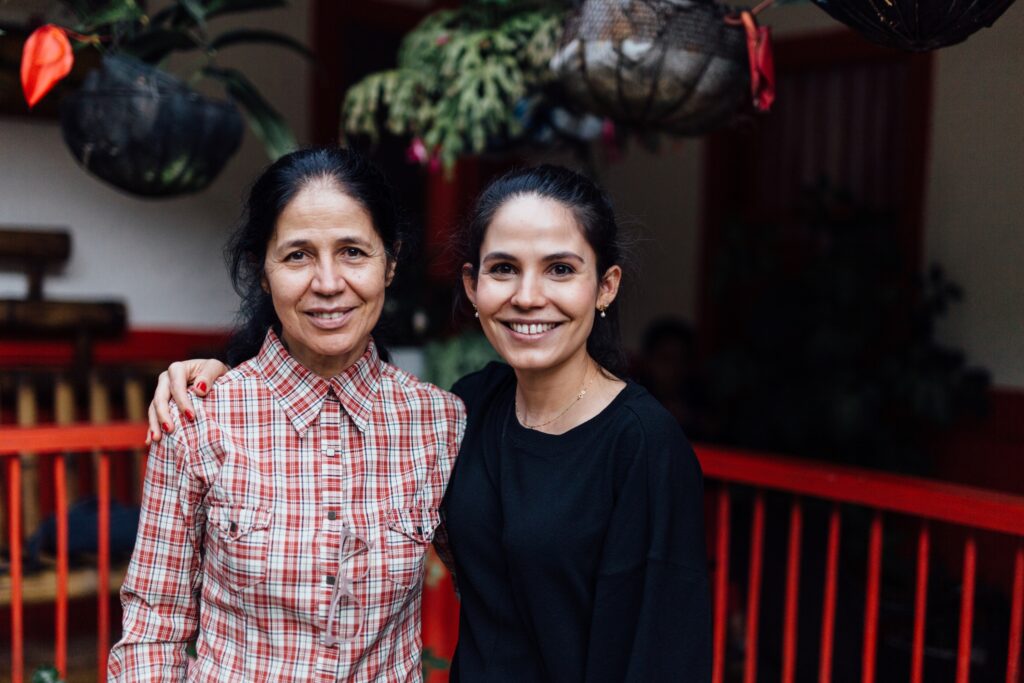
Now, along with her mom, Ramirez is the head of the family farm, Finca San Antonio de la Piedra, where she manages administrative tasks, field management, processing, and recipe management. She grapples with new challenges daily. “One of the biggest challenges will always be depending on the climate,” she says. Climate variability constantly threatens agricultural livelihoods, underscoring the need for resilient farming practices.
As a woman who leads her farm, Ramirez also has to navigate the complexities of gender biases and traditional ideas of who owns farms. “The most complicated part is finding labor for the production of specialty coffee,” she says. “And because we are women-owned, the receptiveness from workers can sometimes be limiting and challenging.”
But Ramirez remains steadfast in her work. She now has relationships with roasters in the US, including Perc Coffee, Treeline Coffee Roasters, and The Hermit Cafe, which has made a massive difference for her farm. She’s having two-way conversations with buyers about price, cost of production challenges, and the success and failure of certain lots. “For me, it will always be very important to know that we are looking for the best for each party in the business,” she says.
Cultivating Change and Opportunity
The National Federation of Coffee Growers (known in Spanish as the Federación Nacional de Cafeteros de Colombia or the FNC) is also stepping in to address Colombia’s aging population in coffee production. The organization’s sustainability plan identifies “generational integration,” or what it defines as “leadership, entrepreneurial opportunities, and life options in coffee farming for children and young people,” as vital for the future of coffee.
In 2018, the FNC hosted the first Young Coffee Growers meeting, helping young people get involved in coffee farming by promoting “policies, models, spaces, programs and projects of education, meeting, participation, innovation, and entrepreneurship,” the FNC website says, “for young people to build a life project around coffee.”
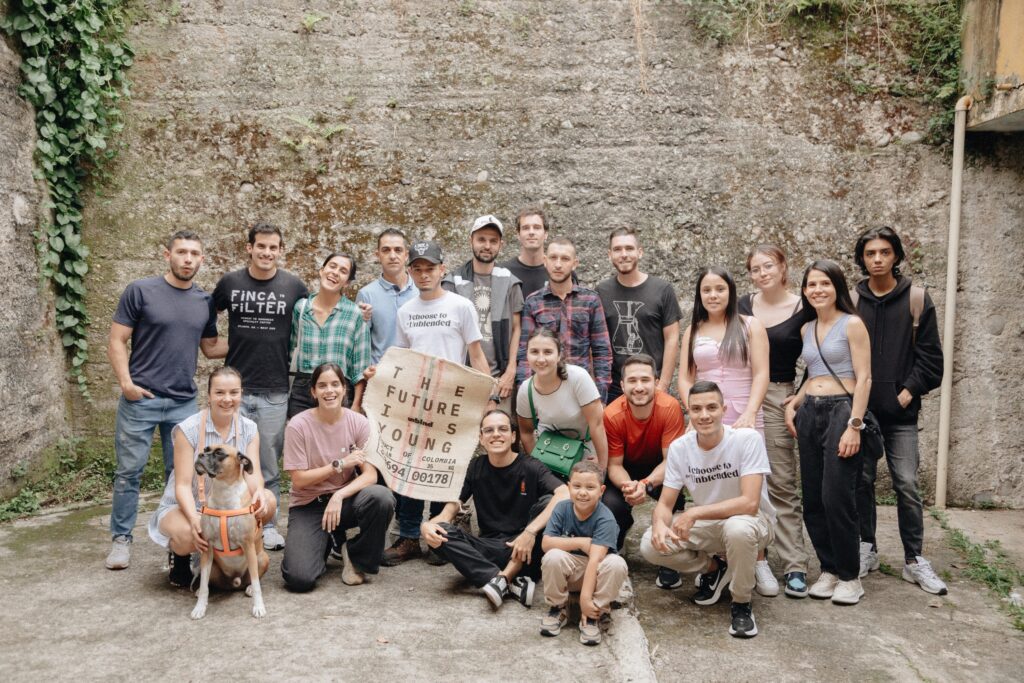
Part of making coffee sustainable for the next generation is ensuring that coffee is actually viable financially for young people. A 2021 study by the International Coffee Organization found that profitability is one aspect that attracts youth to coffee production. As Cuadros points out, demonstrating that coffee production can be profitable also helps quell concerns from parents—they can feel secure about their child’s future and decisions in coffee production.
Cuadros has experienced this shift with the farmers they work with. “Things take a turn for parents for the better when roasters start to visit, and the parents see how happy and excited their children are that someone from another part of the world values their work,” he says.
There’s still a lot of work to do, but the next generation of coffee farmers in Colombia are actively working to preserve their industry and make it viable for others. By embracing their agricultural heritage, young farmers are shaping their future and envisioning an entirely new one for generations to come.












